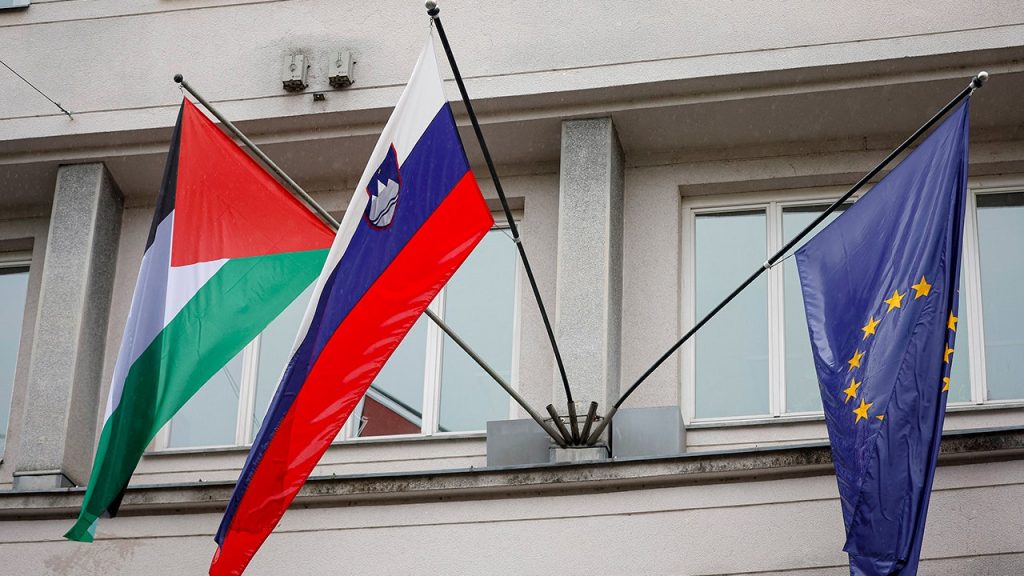Slovenia’s government has officially endorsed a motion to recognize a Palestinian state and is asking parliament to do the same. Prime Minister Robert Golob emphasized the importance of peace and a two-state solution, stating that the decision is not directed against anyone, including Israel. The move comes in the wake of similar decisions by Spain, Norway, and Ireland, and is set to make Slovenia the 10th member of the European Union to recognize a Palestinian state. The process was expedited due to the recent Israeli attacks on Rafah, which has resulted in the displacement of over 1 million Palestinians.
Israel’s Foreign Minister criticized Slovenia’s decision, stating that it rewards Hamas for violence and damages the friendship between Israel and Slovenia. However, parliamentary approval is needed for the recognition to take effect, and Golob’s ruling coalition holds a majority in the assembly. The move has caused tensions between the EU and Israel to escalate, with Spain and Ireland pushing for measures against Israel for its actions in Rafah. Over 140 countries, representing more than two-thirds of the United Nations, have already recognized a Palestinian state.
The decision by Slovenia’s government comes amidst ongoing conflict in Gaza, with Israel launching attacks in retaliation for a Hamas-led assault that resulted in casualties on both sides. The situation has led to international condemnation, with calls for a peaceful resolution to the conflict and an emphasis on the importance of recognizing the rights and autonomy of the Palestinian people. The move to recognize a Palestinian state highlights the complexities and challenges of the Israeli-Palestinian conflict, as well as the need for diplomacy and dialogue to achieve lasting peace in the region.
While some countries have expressed support for the recognition of a Palestinian state, others have opposed the move, citing concerns about the potential impact on regional stability and relations between Israel and its neighbors. The decision by Slovenia to endorse recognition reflects ongoing discussions within the international community about the best path forward for addressing conflict in the Middle East. It also underscores the importance of dialogue, cooperation, and diplomacy in finding a resolution that respects the rights and aspirations of both Israelis and Palestinians.
As Slovenia prepares to join other European nations in recognizing a Palestinian state, the move signals a shift in the political landscape and raises questions about the future of international relations in the region. The decision is likely to prompt further debate and discussion among policymakers, scholars, and the public about the role of the international community in promoting peace and security in the Middle East. It remains to be seen how the recognition of a Palestinian state will impact diplomatic efforts, regional dynamics, and the prospects for a peaceful resolution to the Israeli-Palestinian conflict.


